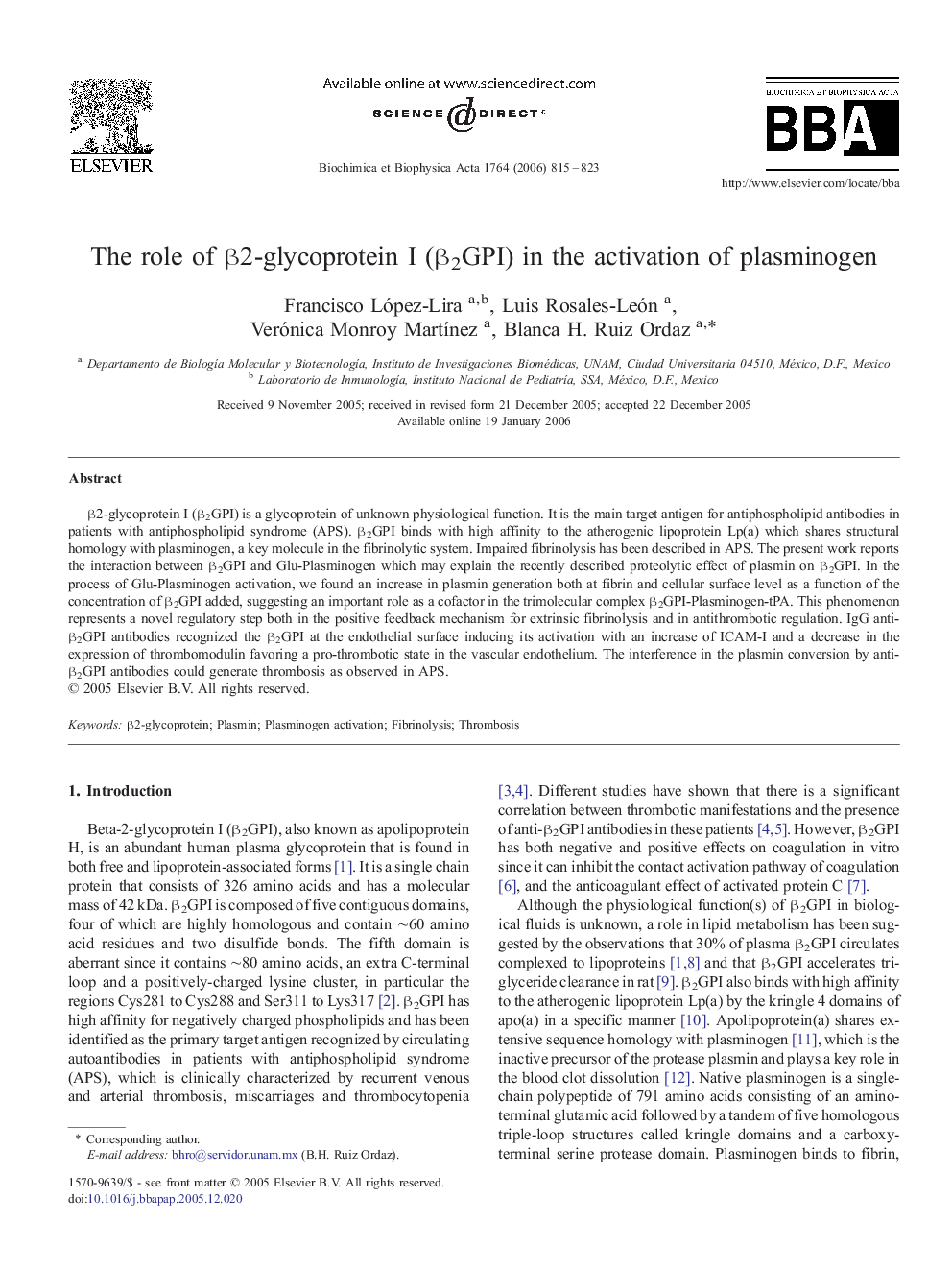| Article ID | Journal | Published Year | Pages | File Type |
|---|---|---|---|---|
| 1179748 | Biochimica et Biophysica Acta (BBA) - Proteins and Proteomics | 2006 | 9 Pages |
β2-glycoprotein I (β2GPI) is a glycoprotein of unknown physiological function. It is the main target antigen for antiphospholipid antibodies in patients with antiphospholipid syndrome (APS). β2GPI binds with high affinity to the atherogenic lipoprotein Lp(a) which shares structural homology with plasminogen, a key molecule in the fibrinolytic system. Impaired fibrinolysis has been described in APS. The present work reports the interaction between β2GPI and Glu-Plasminogen which may explain the recently described proteolytic effect of plasmin on β2GPI. In the process of Glu-Plasminogen activation, we found an increase in plasmin generation both at fibrin and cellular surface level as a function of the concentration of β2GPI added, suggesting an important role as a cofactor in the trimolecular complex β2GPI-Plasminogen-tPA. This phenomenon represents a novel regulatory step both in the positive feedback mechanism for extrinsic fibrinolysis and in antithrombotic regulation. IgG anti-β2GPI antibodies recognized the β2GPI at the endothelial surface inducing its activation with an increase of ICAM-I and a decrease in the expression of thrombomodulin favoring a pro-thrombotic state in the vascular endothelium. The interference in the plasmin conversion by anti-β2GPI antibodies could generate thrombosis as observed in APS.
